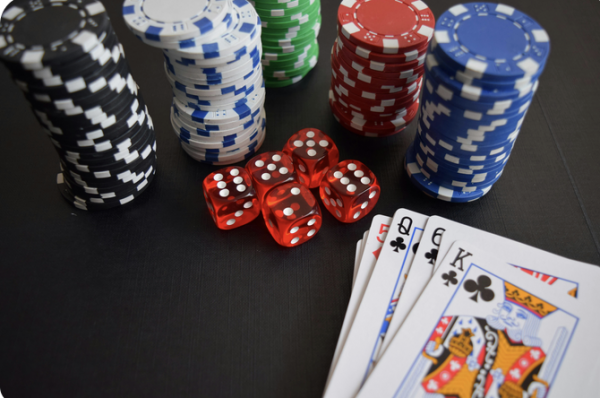The Psychology Behind Table Game Strategies: What Characteristics Define a Good Gambler?
It is not only the adrenaline rush or the notion of getting a prize, or even the company of other people that make free casino table games really fascinating; it is the mind’s complexity. Learning the psychological aspect of table game strategies can help in explaining the nature of a good gambler. The following has been discussed in an attempt to really analyze different psychological factors and strategies that are involved in gambling.
The Psychological Background of Gambling: Basic Concepts
It is important for you to note that gambling is not only a game of fate but also a game of the mind. In the present study, players’ decisions and strategies are found to be governed by their psychological condition. From dealing with feelings to comprehending the mind’s tricks, the psychology of gambling is as important as anything that happens at the table. In this regard, good gamblers are usually those who have control over their minds as well as the game.
Cognitive Biases in Decision-Making in Gambling
Cognitive biases are defined as systematic deviations in judgment from the standard or rationality. There are various kinds of cognitive errors that a gambler may be doomed to make, including the so-called gambler’s fallacy, over-confidence and illusion of control. Identifying these biases and how they affect behavior could assist gamblers in making better decisions and thus increase their chances of winning.
Emotional Control: Staying Calm in the Heat of the Moment
Controlling one’s emotions is critical in gambling since it is an activity that requires one to have a clear mind. Self-discipline, especially when experiencing a losing streak, is one of the traits that define a successful gambler. Feelings of frustration or excitement are inevitable and can outsmart the rational self, which in turn leads to wrong decisions. Strategies like mindfulness and stress control are useful in preserving the emotional equilibrium thus reducing the chances of making decisions based on feelings.
Risk Perception and Decisions on Table Games
The perception of risk also differs from one person to another and may impact on gambling activities. Thus, good gamblers are very well aware of possible risks and are able to compare the possible gains with the probability of particular results. They use measures that enhance their probability of getting it right and at the same time reduce chances of being wrong. It is crucial to know one’s own risk sensitivity and to create a specific plan for decision-making as key elements of effective gambling.
The Role of Social Forces in Decision-Making while at the Table
The interactions that are seen at the social level during the game can deeply impact the player’s approach and actions. Fellow players, rivalry and the actions of other players can also affect choices that may be made. Such social factors are well known to good gamblers and they take them into account when playing, for example, poker or trying to psyche out opponents. It is therefore important to be able to recognize and manage social influences as this can improve strategic play.
Positive Reinforcement and Superstitions
Self-efficiency, positive reinforcement and superstition are the factors that are closely related to gambling. This is because wins strengthen some behaviors in players, thus the players will try to repeat those behaviors to achieve similar results. Although some players still trust in such factors as talismans or other equipment, professional gamblers know that these are the means of comforting their minds and should not control the approaches to the game. This means that between the rational approach to the game and the individual’s pre-game routines, he or she will not lose sight of the goal.
Pattern Recognition and Memory: Strategic Play Tools
Pattern recognition and memory are crucial assets to a gambler. Identifying tendencies in the opponents or the game’s results may be beneficial for the player. For instance, poker players who have mastered the game will always have in their memory the pattern and the way their opponents bet in the past so that they can make the right moves. Memory and pattern recognition are vital and if enhanced greatly improve the player’s chances when gambling.
Stress and Fatigue as Key Factors of the Gambling Performance
Stress and fatigue can affect one’s thinking process and judgment and therefore result in poor performance at the table. It is a fact that good gamblers know that they have to be sharp both in the body and the mind. They pause, have ways of dealing with stress, and do not sit for too long which may lead to fatigue. It is very important to be in top form mentally so that one can be alert and make proper decisions on the field.
Developing a Winning Mindset: Confidence and Overconfidence
Overconfidence is the opposite of confidence and this shows that a winning mindset lies in the middle of the two extremes. Confidence is the ability of the gamblers to take risks and make big moves while sticking to the right strategies while overconfidence puts the gamblers at risk of taking unnecessary risks and underestimating the risks that are involved. Such people are confident but not over-confident; they do not get overbearing and arrogant as some successful gamblers do. Hence, developing a winning mindset is a process that entails acquiring knowledge, assessing oneself and modifying the approach as one progresses.
Strategies to Enhance Attention and Productivity
Confidence and concentration are very important in gambling because one has to be very keen to win. One can get distracted easily and make simple errors that could be expensive. Some of the psychological strategies, which are adopted by good gamblers include visualization, goal setting and mental conditioning, which help in increasing concentration. Other activities such as meditation and mindfulness can also enhance concentration where players are able to focus on a certain task and make good decisions. Learning such techniques can be beneficial when playing at the table.
Thus, the psychology of table game strategies is a rather interesting and multifaceted aspect of gambling. Learning about and being able to manage cognitive biases, emotions, risk assessment, social relations and other mental aspects can greatly improve a gambler’s results. This way, the psychological approach blended with the game tactics can help the gamblers increase their chances of winning and have more fun.
|
|















